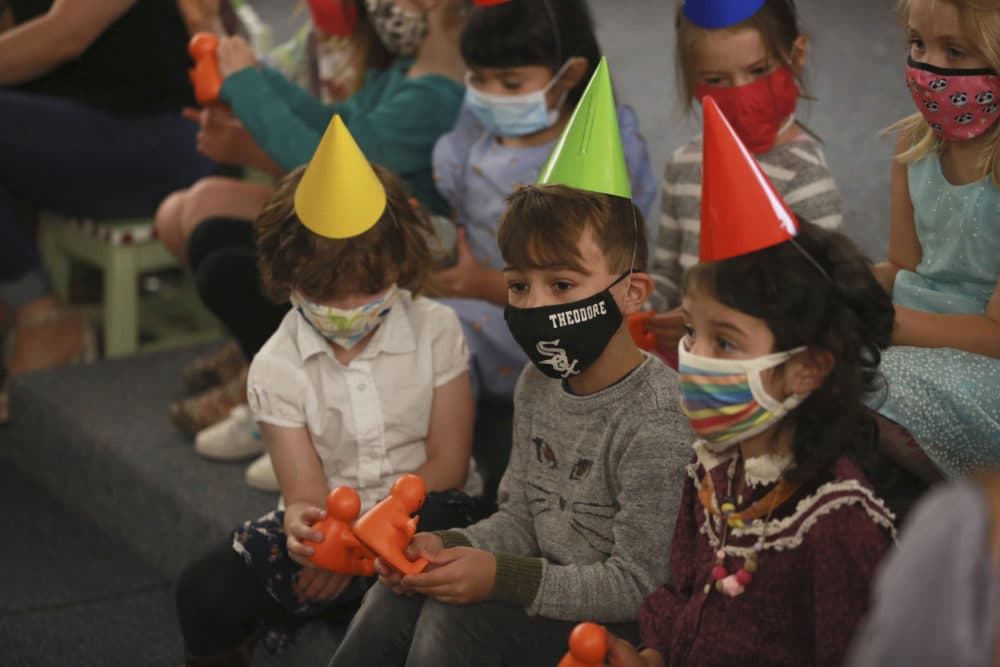Advertisement
Commentary
How we can help anxious kids help themselves

Early in the pandemic, children were viewed as much less vulnerable than adults. Until the current wave of the delta variant, children were largely able to avoid the disease. But now pediatric cases are rising, and each week this fall, more than a quarter of a million children were diagnosed with coronavirus. In some places, more children have been diagnosed than adults.
The pandemic hasn't only created physical risks for children. It also appears to have ravaged their mental health. Virtually every study examining children’s mental health in 2020 and 2021 has found increased anxiety and/or depression, with findings pointing to a particularly worrisome rise in anxiety. In Brazil, a study of children found that 22% met criteria to be diagnosed with an anxiety disorder, more than three times pre-pandemic levels.
In Massachusetts, a study of older teens has found that an astonishing 71% reported “significantly increased anxiety and/or depression” during the past year. In that study, anxiety was significantly more common than depression, although both problems were reported to be increasing. Studies in China examined changes in youth’s mental health and also noted, consistently with all other research, that anxiety was on the rise.
In Massachusetts, a study of older teens has found that an astonishing 71% reported 'significantly increased anxiety and/or depression' during the past year.
In response, mental health care professionals are looking at ways to help children. Schools, clinics and practices that cater to young patients are reexamining and shoring up their services. But efforts to help children understand how to protect, improve and advocate for their own mental health haven't been as widely implemented. Of course, severe anxiety is not a condition/problem that either children or adults can fix/solve themselves. In those cases, parents should discuss this problem with their pediatrician or with another health professional. But in many cases, teaching kids ways of managing their own anxiety -- for example, when anxiety is mild -- can be a valuable life lesson.
So what helps, according to research, especially with anxiety? First, education about mental health can be beneficial. The Massachusetts Aggression Reduction Center has a free, kids-teach-kids curriculum that any parent, teacher or counselor can download. It’s specifically designed to make kids aware of pandemic-related anxiety and teach them ways to manage it. A number of children’s books offer age-appropriate education about the pandemic, in language that children can readily understand.
Such educational tools can help children begin to understand and address their concerns about masking, social distancing, school, friendships and the vaccine in an accessible, kid-centric way. Adults often use language that children may not understand, and kids can be empowered when concepts and emotions are explained to them.
Education, however, is not only about learning vocabulary; it’s also about sharing helpful practices. For example, children can learn about the association between factors such as outside play, and exercise and reductions in anxiety. Caregivers can play a role in modeling this positive strategy. Families can take walks or hikes, play outside, or simply engage in non-screen inside activities, such as cooking, eating meals together, reading and playing board games.
[T]eaching kids ways of managing their own anxiety — for example, when anxiety is mild — can be a valuable life lesson.
It’s also important for children and teens to learn about the ways that social media can affect their anxiety levels. We enjoyed and relied upon social media for basic social interactions during this pandemic, but social media use can also contribute to anxiety. Children and teens can learn how taking breaks from screens, and especially from social media, can help them relax.
Finally, distraction can be a powerful and important tool in reducing milder forms of anxiety. Helping your mind think about topics other than its anxious thoughts can, for many, bring some relief. Learning how to use distraction effectively can result in feelings of control and competence. Once children learn about distraction as a technique, they can decide for themselves when they need an interesting or funny break. Temporarily re-focusing attention on something that is relaxing or humorous can be fun and can help children feel like they have some control over anxious thoughts.
Dentists don’t just tell us to visit them; they teach children (and adults) to practice prevention by brushing and flossing. In the same way, we can help children and teens learn how anxiety is a common problem as we go through this pandemic. We can teach them how to help prevent it and how to help reduce it, if it becomes a problem. Parents, teachers and other caregivers can help children learn to manage their own symptoms and, hopefully, recover as quickly as possible from the results of the pandemic.

